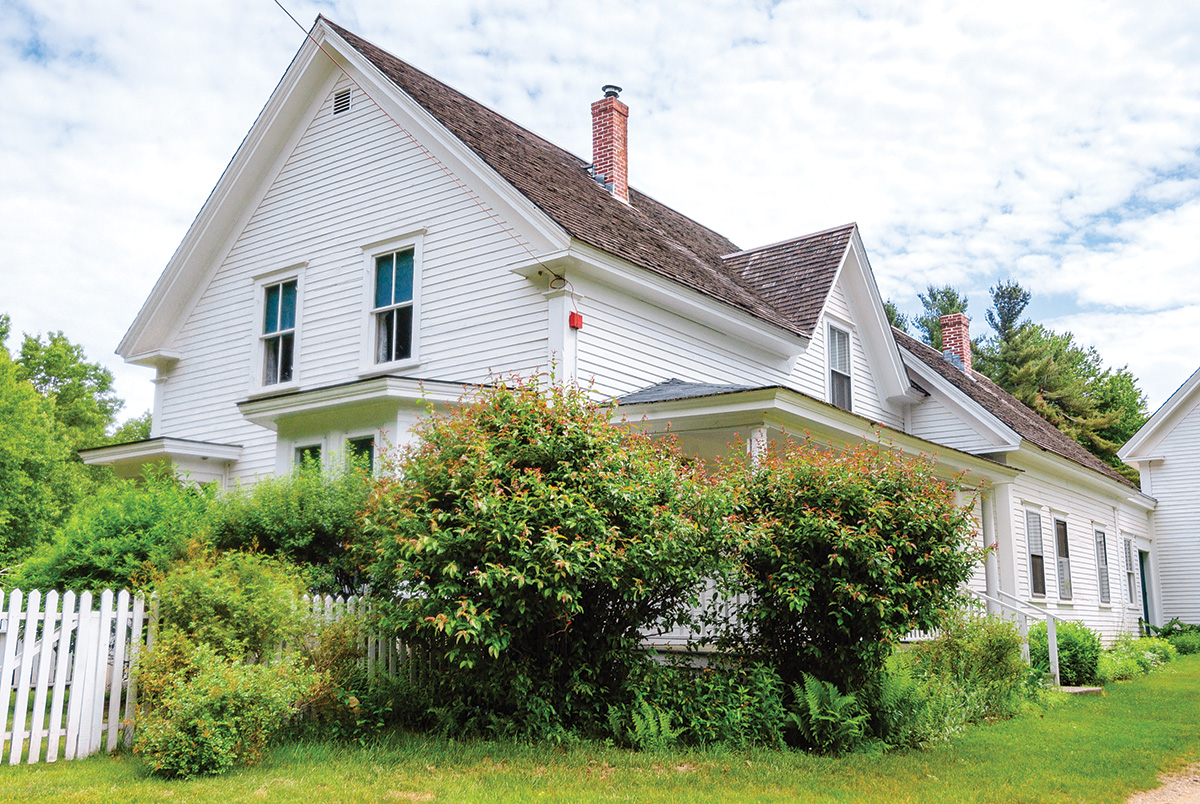

ROBERT FROST FARM
Zach Frank / Shutterstock.com
122 Rockingham Road
Derry, NH 03038
Phone: 603-432-3091
www.robertfrostfarm.org
“Two roads converged in a yellow wood,
And sorry I could not travel both
And be one traveler, long I stood
And looked down one as far as I could
To where it bent in the undergrowth;
“Then took the other, as just as fair,
And having perhaps the better claim,
Because it was grassy and wanted wear;
Though as for that the passing there
Had worn them really about the same,
“And both that morning equally lay
In leaves no step had trodden black.
Oh, I kept the first for another day!
Yet knowing how way leads on to way,
I doubted if I should ever come back.
“I shall be telling this with a sigh
Somewhere ages and ages hence:
Two roads diverged in a wood, and I –
I took the one less traveled by,
And that has made all the difference.”
— ROBERT FROST, “THE ROAD NOT TAKEN”
Robert Frost (1874–1963) is one of the most popular twentieth-century American poets. His poems convey the spirit of New England rural life, and it was at this farm that he was inspired to write many of them, including “The Road Not Taken.” He was awarded the Pulitzer Prize for Poetry and the Congressional Gold Medal.
But Frost did not always live here. He and his family moved here from Lawrence, Massachusetts, in 1900. Here he wrote most of his poems for his books Mountain Interval, North of Boston, and A Boy’s Will. The Frosts left the farm in 1909 when Robert began teaching, first at Pinkerton Academy and later at Plymouth Normal School. Funds from his sale of the farm in 1911 paid for his family’s journey to England, where his poetic genius was recognized and his first book was published.
Following this, the farm had several owners. Sadly, it degenerated to an automobile grave in the 1960s. Frost expressed his wish that the farm be bought and restored to what it had been. He never lived to see this; he died in 1962. The State of New Hampshire bought the farm in 1974 and restored it. The Robert Frost Farm is a New Hampshire State Park.
Visitors may tour the parlor, dining room, kitchen, pantry, laundry room, and bedrooms. There are also a barn and woodshed to see and trails to explore. The Park also offers poetry readings.